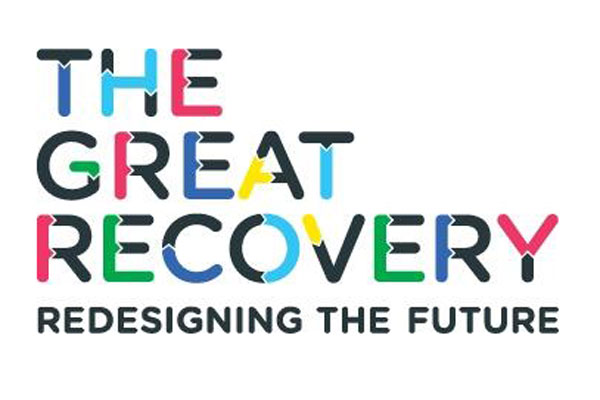Over the next 25 years it is estimated that the cost to decommission oil and gas assets from the North Sea will cost £46bn.
The costs for decommissioning are currently running at about £1.8bn a year and this is forecast to continue into the next decade and beyond. 50% of these assets are coming from the UK sector of the North Sea. According to the UK Oil and Gas UK Decommissioning Insight Report this represents over 470,000 tonnes of topside, substructure and subsea installation. Currently up to 98% of these materials by weight are recycled into raw materials outside the UK and only a fraction of the material is recovered for reuse.
The previous Zero Waste Scotland report from the Circular Economy 'Evidence Building Programme on Oil and Gas' suggests that decommissioning could recover far more material and improve the value of what could be achieved by diverting components and material into reuse streams.
The reasons more material is not recovered for re-use are to do with an understandable culture within the sector that is risk averse; a preference to buy new; concern that Health and Safety would be compromised; the bespoke nature of each rig; the enhanced performance of new equipment and obsolescence of older components, parts and systems; concerns about warranties and insurance; lack of capacity in Scotland to handle and process large rigs; the difficulty in getting information about products or condition surveys of materials on rigs.
One potential way to avoid many of the barriers is to to reuse components and materials in other industries. The very high quality of the products being specified on rigs coupled with the an intensive inspection and maintenance regime means that many of the materials could potentially be reused in a wide range of sectors including chemicals, agriculture, construction, utility and infrastructure provision, off shore wind generation etc.
Useful Simple Projects and the Great Recovery brought together 13 experts from industry to look at potential reuse of 24 products that are typically used on Oil and Gas assets. The experts identified 186 different ways those materials could potentially be reused across 12 different industrial sectors.
The study further identified that to unlock the potential the following steps would be required:
- A pre-decommissioning audit of each asset to understand the range, quantity and condition of the materials being decommissioned. Access to this information would allow brokers and material handling companies a chance to assess the potential market for the components and in some cases pre-sell them.
- New decommissioning techniques that will allow more of the asset to be landed in smaller ports the UK. Ideally an industrial park should be developed specifically to accept and recondition the wide range of materials that lend themselves to reuse.
- Detailed assessment of all the materials is required once the materials are landed
- Bringing together facilities and the skill to decontaminate, check and repurpose a wide range of components.
- Testing and certification systems would need to be established or brought together before products and components could be resold
- New markets need to be opened up in the different sectors both in the UK and overseas.
In order to move this project forward a more detailed assessment of the quantity and quality of materials coming from the assets needs to be undertaken. In addition, potential markets need to be tested to understand the potential demand for components, and what different markets are willing to pay.
This assessment would provide the evidence that DECC and others need in order to set more challenging reuse targets. Without this type of legislative driver it is difficult to see how the Oil and Gas companies will be encouraged find ways to invest in circular economy solutions that could potentially create new jobs, skills and enterprise in Scotland and reduce the carbon emissions associated with decommissioning.
We are currently helping ZWS investigate how the circular economy concepts can be used in the Fish, Beer, Whisky and Farming industries. We have been developing a series of ideas for how the Orkneys can use bio-economy principles to reduce its reliance on the expensive import of livestock feed and fertiliser by making use of whisky, beer and other waste. We are also looking at options for using sewage and other farm wastes that are costly to dispose of to generate heat, power, fertiliser and fibre.
Our work with ZWS has been fascinating and very engaging. We firmly believe that circular economy principles offer enormous potential in both these sectors but it challenges the technical approaches that have been adopted to waste and resource management as well as the way in which costs and value are shared across the supply chain and how wider social and environmental costs and benefits are appraised.
Successful adoption of circular economy principles will require new business partnerships; new ways to share whole life costs and revenue; new systems approaches to resource utilisation that are potentially disruptive; in a risk averse environment, a willingness to test new technologies and industrial processes.
Useful Simple Projects are working with the Great Recovery and Zero Waste Scotland to explore the value the circular economy could bring to a number of industries in Scotland. Our first report was published last week which looks at the potential to reuse Oil and Gas assets in the North Sea to stimulate economic development and address major environmental issues.
Related articles
-
Blog: Recycling - the USB plug for a circular economy
Sandy Roger
The standardised USB plug removes confusion, waste and inefficiency in our IT systems; Sandy Rodger argues that standardising our recycling processes would do the same for end of life material recovery.
-
Blog: Why is the circular economy transformational (and not just a smaller elephant?)
Sandy Rodger
Sandy Rodger FRSA explains why Circular Economy is a force for creating a new, transformational, conversation about resources - and not just a smaller elephant.
-
Blog: The New Plastics Economy – a breakthrough, and not only for plastics
Sandy Rodger
Sandy Rodger FRSA reflects on the recent report from the Ellen MacArthur Foundation's Project MainStream - The New Plastics Economy


Be the first to write a comment
Comments
Please login to post a comment or reply
Don't have an account? Click here to register.